Plenary Speakers (NSC)
(in alphabetical order)

Dr. Alfy Gathorne-Hardy
University of Edinburgh (UK)
Alfred Gathorne-Hardy grew up on a mixed farm in England. He initially trained in ecology and worked in private consultancy before returning to academia to do an inter-disciplinary PhD at Imperial College, London. Since then his research has shifted to food-systems-science; engaging in the complex trade-offs between social and ecological land use goals in both Europe and India. In this capacity he worked at the University of Oxford, where he later became the research director at the Oxford India Centre for Sustainable Development, before his present job at the University of Edinburgh. He’s been seconded three times to the UK government in a variety of roles, and still takes an active interest in the policy-science interface.
“What would agriculture look like if designed by an ecologist? More gardens, less fields.”
Ecology is the study of how organisms interact with each other and the abiotic environment. As an ecologist of agricultural systems for 2+ decades, I remain surprised by how little ecological science is integrated into agriculture. In this talk I’d like to focus on two structural properties of monocultures that are inherent in both organic and high-input systems, and which are detrimental for farmers, consumers and the wider environment.
Firstly, monocultural systems are wasteful. They are wasteful of energy, wasteful of inputs and wasteful of space. Monocultures exploit only the ecological niche occupied by the single crop thereby failing to take advantage of the wider resources available to maximise overall yield potential of the land area, Yields are further reduced through inefficient use of nutrients and/or the requirement to apply more energy-dense fertilisers. Monocultures produce high quality food in a concentrated area, but this leaves them vulnerable to pests and a leads to a dependence on external inputs (natural or synthetic).
Secondly monocultures are less resilient than diverse cropping. Increasingly diversity reduces crop vulnerability to stresses and shocks including abiotic (i.e. drought, flood, heat) and biotic (i.e. pests or disease) factors. As structural diversity is added to the system, for example Agroforestry, resilience is further increased.
Finally I would like to reflect on the necessity of including other disciplines in agriculture beyond ecology – especially social sciences engaging in the quality of work for the individuals actually outside in the fields.
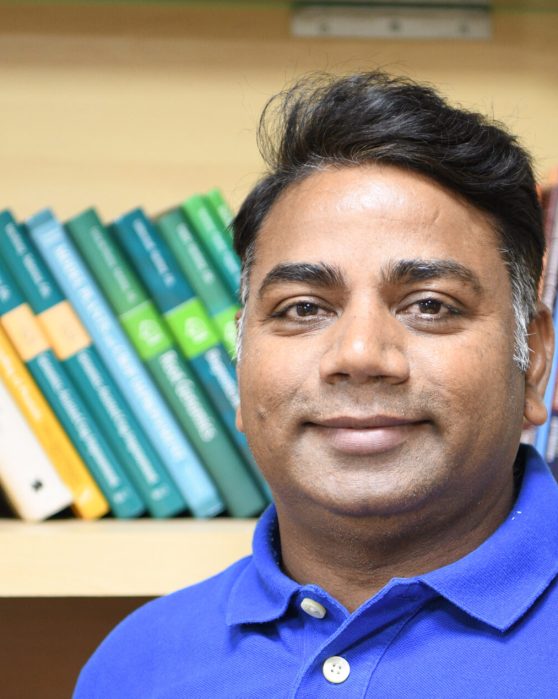
Prof. Dr. Rajeev Varshney
Murdoch University (Australia)
Prof. Rajeev Varshney is an agricultural research scientist specializing in genomics and molecular breeding with more than twenty years of service in international agriculture while working in India, Germany, Australia, Mexico, and several countries in Africa. At present, he is serving Murdoch University (Australia) as a Director, Centre for Crop & Food Innovation; Director, State Agricultural Biotechnology Centre; and International Chair in Agriculture & Food Security with the Food Futures Institute. He is an Honorary or Adjunct Professor with more than 10 universities / organizations in China, Australia, Africa and India.
Prof. Varshney is a globally recognized leader for his work on genome sequencing, cataloguing, and utilizing genetic diversity, genomics-assisted breeding, seed system and capacity building in developing countries. He has made centrally important contributions towards improving food and nutrition security in India and several countries in Africa and Asia by assembling genomes, developing genomic resources, and integrating genomic technologies in crop improvement programs in many tropical crops, and delivering several superior crop varieties to some of the world’s poorest farmers.
Prof. Rajeev Varshney has an h-index of more than a 100 and is an elected fellow/Academician to about 10 science and agriculture academies / societies in India, Germany, USA, and Africa. He has won more than 30 prestigious awards from USA, Germany, China, India, Nepal, Vietnam, Philippines, UAE, and many countries in Africa including the Shanti Swarup Bhatnagar Prize, the Rafi Ahmed Kidwai Award from Government of India, International Crop Science Award from USA, Qilu Friendship Award from China. He has been named as the Top Scientist in Agronomy and Crop Science category in the list of 250 Top Scientists in Australia by The Australian newspaper’s Research Magazine in 2022, among the Top 100 scientists from Asia by The Asian Scientist magazine in 2022, among 25 global researcher in biotechnology by Nature Biotechnology in 2021, and one of 10 most influential Indian scientists by The Times of India in 2019. His research and interviews have been covered in the leading international media such as The Forbes, BBC, The New York Times, ABC, The Economist, The Ecologist, Cosmos, and many other international print and electronic media (including TV and Radio channels) in multiple languages across several countries.
“Genomics for food security in developing countries”
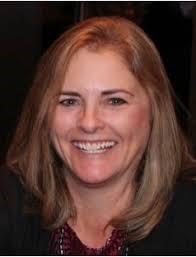
Prof. Dr. Nancy J. Cooke
Arizona State University (USA)
Nancy J. Cooke is a professor in Human Systems Engineering at the Polytechnic School. She also directs GSI’s Center for Human, AI, and Robot Teaming. Dr. Cooke is a Past President of the Human Factors and Ergonomics Society and the past chair of the Board on Human Systems Integration at the National Academies of Science, Engineering, and Medicine. Professor Cooke’s research interests include the study of individual and team cognition and its application to the development of cognitive and knowledge engineering methodologies and human-machine teaming. She specializes in the development, application, and evaluation of measures to assess team cognition unobtrusively and automatically. Ongoing projects in her group include coordination of human-autonomy teams in the face of unexpected events, human-robot teaming and situation awareness, human-machine teaming for the Army’s Next Generation Combat Vehicle, and artificial social intelligence. Her work is funded by DoD.
“Human-Artificial Intelligence Teaming”
The future of work will require technology to work closely with humans in a teaming relationship in which the AI (Artificial Intelligence) does what it does best, and humans take on complementary roles doing what they do best in an interdependent fashion. Effective human-AI teaming requires best practices in human-systems integration including appropriate team composition and role assignment, designing effective human-AI team processes, team development or training, and effective team measurement. Carrying out human systems integration on human-AI teams requires synthetic ask environments, the Wizard of Oz paradigm, and real-time unobtrusive measurement.
Keynote Speakers
(in alphabetical order)
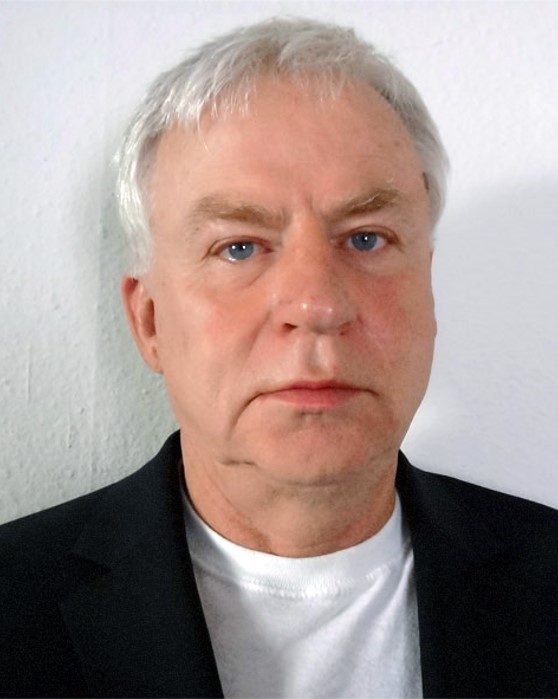
Prof. Dr. Reinhard Blutner
University of Amsterdam, Institute of Logic, Language and Computation, Amsterdam, Netherlands
Reinhard Blutner completed his Ph.D. in Theoretical High Energy Physics at the Karl Marx University of Leipzig (1975). Furthermore, he has a habilitation thesis in Cognitive Science at the Humboldt University of Berlin (Faculty of Philosophy, 1995). Blutner started his scientific carreer at the East German Academy of Sciences. Later, he taught linguistics at the Humboldt University of Berlin and artificial intelligence at the University of Amsterdam. In Amsterdam, he also gave courses on the philosophy of mind, intensional logic, and quantum cognition. Further, he gave courses at the University of Krakow, Stanford University, the University of Bloomington, the University of Oslo, and the Universities of Stockholm, Zadar, and Ljubljana. Blutner has written several books and about a hundred publications. His research interests concern the semantics and pragmatics of natural language, bidirectional optimality theory, lexical pragmatics, symbolic-connectionist integration, quantum cognition, and reasoning with uncertainty. Since his retirement in summer 2013 his work has concentrated on quantum cognition, including applications in cognitive musicology.
“Quantum Cognition and Natural Language Interpretation”
I will discuss the thesis that natural language interpretation is basically as direct as perception (DPL thesis) (Millikan, 1984; Recanati, 2006). If correct, the DPL thesis has important consequences for constructing psychologically adequate models of interpretation. DPL − properly generalized − asks for a default mode of NL interpretation which is fully compositional and runs automatically. I will demonstrate the involved mechanism with examples of adjectival modification (Partee, 2010).
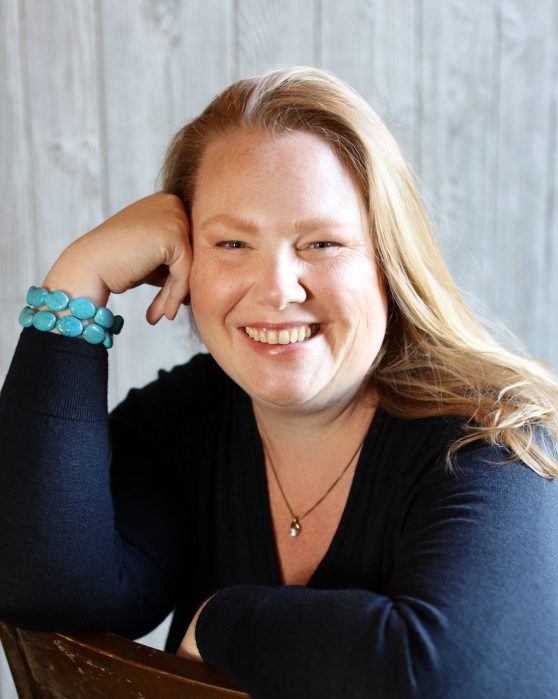
Prof. Dr. Amy Chapman
Columbia University, New York City, USA
Amy Chapman, Ph.D. is the Director of the Collaborative for Spirituality in Education (CSE), a center for research and teaching at Teachers College, Columbia University. Amy researches spiritually supportive school culture and provides professional development for educators and school districts to apply that research in their own schools. Amy also serves as the Director of the Innovating Forward Initiative at TC, which offers seed grants to community partnerships to address mental health concerns. Amy’s research interests lie at the intersection of social media, social studies, and social justice. She researches factors which support or inhibit youth civic participation, spirituality in education, and the ways in which social media can be used to support or thwart community and civic participation. Amy’s first book, Social Media for Civic Education: Engaging Youth for Democracy was published in October 2022 by Palgrave Macmilllan. A former public school teacher, Amy holds three degrees from Boston College and a doctorate in Educational Psychology and Educational Technology from Michigan State University.
“Showing Up as the Whole Self in the Classroom – Nurturing Spirituality in Educators and Students”
Twenty five years ago, Parker Palmer, Rachael Kessler, Nel Noddings and others called educators to recognize the spirit of the child, to take responsibility for children’s spiritual development, and to cultivate spirituality in public schools (Kessler, 2000; Scherer, 1998). Around the same time as these calls came from educational leaders about supporting spirituality through education, research identified spirituality as an innate human capacity (Kendler et al., 1997; Koenig et al., 2008; Button et al., 2011). While we each are born spiritual beings, for that capacity to fully develop, of our innate spirituality through interactions with others. Additionally, we are hardwired for spiritual experience: four regions of the brain are the neural correlates for spiritual awareness (McClintock et al., 2019; Miller et al., 2019). Beyond being a natural part of human development, engaging our natural spirituality provides neuroprotective benefits: students who are spiritual had a 60% decrease in their risk for addiction, had an 80% decrease in major depression, and a 70% decreased risk for dangerous risk-taking (e.g. driving fast, thrill seeking, physical endangerment), (Barkin et al., 2015; Miller et al., 2000; Miller et al., 1997; Miller & Gur, 2002). Having a strong spirituality has been shown to significantly reduce the risk of completed suicide (Wu et al., 2015).
Understanding this research and the importance of supporting students’ spirituality in schools, we conducted three years of ethnographic research on spiritually supportive school culture (Chapman et al., 2021). From that research, we identified 12 drivers of spiritually supportive school culture which together provide a framework through which schools can intentionally create a culture which supports students’ innate spirituality. In spite of an increase in contemplative practices in the West, often these practices are disconnected from the faith and wisdom traditions from which they come. Supporting spirituality must be integrated: it cannot be discrete practices that are disconnected from a way of being and way of life. Through The Awakened Schools Institute, an online professional development program for educators, we provide a spiritual community for adults and model spiritually supportive education. At The Awakened Schools Institute, we seek to connect spirituality to all parts of education, so that each child is understood and seen always as a spiritual being. At the same time, nurturing children’s spirituality makes it necessary for adults to attend to their own spirituality. This talk will present the neuroscience of spirituality, the research which applied that science to understand how schools support students’ innate spirituality, and illustrate the importance of attending to educators’ spirituality to the creation of a school environment which fosters students’ spiritual development.
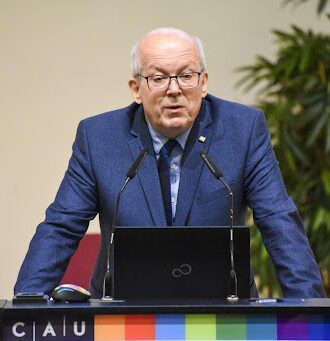
Prof. Dr. Wolfgang J. Duschl
Kiel University, Germany
Wolfgang Duschl is a full Professor for Astrophysics at the Christiana Albertina University (CAU) at Kiel, Germany (since 2006). He is also the Chairman of the Academic Senate of CAU, and the Chairman-elect of the Board of Directors of the international professional journal “Astronomy & Astrophysics”.
He received his Doctoral degree from the Ludwig-Maximilians-Universität in Munich (Germany) with a thesis prepared at the Max Planck Institute for Astrophysics (Garching, Germany). Other stations in his career were the Universities of Cambridge (UK), Heidelberg (Germany), and Arizona (Tucson, AZ, USA), and the Max Planck Institute for Radio Astronomy in Bonn (Germany).
His main research interests are the evolution of super-massive black holes and the atmospheres of exoplanets.
“Liminal Consciousness and the Problem of Subjectless Experience”
This paper defends the existence of minimal subjectivity in liminal conscious states. Liminal conscious states include a broad family of nonordinary and pathological states of consciousness (ego dissolution, meditative absorption, minimal conscious states, etc.), whose experiential content is said to be indeterminate (at least by certain measures). Specifically, such states are said to lack the specification of spatial, temporal, affective, and agentive self-locating content. The proposed argument does double duty by defending a view of liminal conscious states as constitutively phenomenal and of phenomenality as exhibiting a distinctively self-
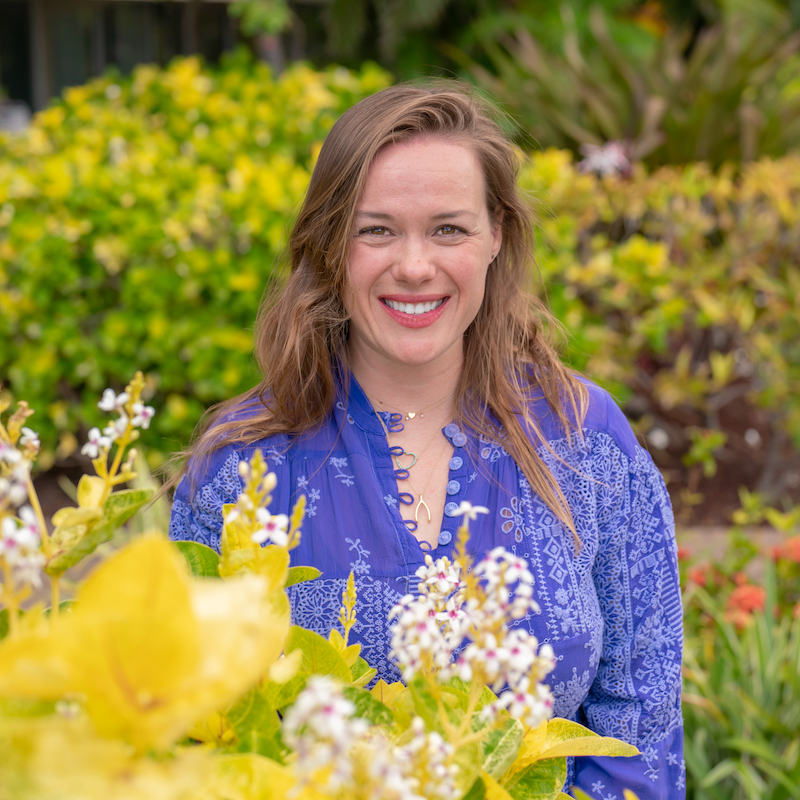
Prof. Dr. Natalie Gruber
EdD, LCSW, Certified Mindfulness Teacher/Academic Associate, Mary Lou Fulton Teachers College, Arizona State University, USA.
Natalie K. Gruber is a highly qualified professional in the fields of education and mental health. She holds a Doctorate in Educational Leadership and Innovation from Arizona State University (ASU), focusing her research on assisting children with emotion regulation through a parent mindfulness program in Arizona’s first mindful school district. She has received training as a Mindfulness Facilitator from the University of California, Los Angeles (UCLA) and holds certifications as a Mindfulness Teacher and Art Therapist.
Gruber has a diverse educational background, including a Certificate in Art Therapy from Northwestern University, a Master of Social Work from the University of Michigan, and a Bachelor of Arts in Psychology from the University of Michigan. She is a Licensed Clinical Social Worker (LCSW) in both Arizona and Illinois.
Currently, Gruber works as an Academic Associate at ASU, collaborating with Dr. Danah Henriksen on research related to Arizona’s first mindful school district. Her role involves developing and implementing surveys, conducting ethnographic observations, and carrying out interviews to assess the effectiveness of mindfulness practices in classrooms and schools. She has also worked as a mindfulness program creator and teacher at ASU, where she designed a program to support the mental health and social connections of undergraduate students.
Gruber’s research and expertise have been published in various academic journals and magazines. Her doctoral dissertation focused on assisting children with emotion regulation through a parent mindfulness program. She has also presented her research at conferences and delivered webinars on topics related to mental health, mindfulness, and social-emotional learning.
In addition to her research and teaching experience, Gruber has worked in clinical settings, such as Jewish Child and Family Services, where she served as an Access Team Clinician and Residential Clinician. In these roles, she provided counseling and support to individuals, couples, families, and teenagers in foster care.
Given her extensive knowledge and experience in mindfulness, education, and mental health, Natalie K. Gruber is a valuable asset in promoting well-being and providing support to individuals, families, and communities.
“Building generations of regulation by teaching parents mindfulness.”
The Balsz School District in Phoenix, Arizona, is the fifth most economically segregated school district in the United States. Referred to as a “mini–United Nations,” children there have difficulty regulating emotions, leading to behavioral, relational, and learning challenges. Whether by exposure to community or domestic violence, the immigration process, being a refugee or homeless, trauma has undermined children’s emotion regulation. Set within a larger study on mindfulness teaching for all teachers and students in the district, this research adds parent mindfulness and investigates its role in the expansion of consciousness in the parent child relationship. Interpersonal Neurobiology (Dan Siegel), accounts for the neuroscience of emotion regulation in the brain, body, and behavior in relationships and asserts that each of these function as systems. Attachment theory, developed by John Bowlby and Mary Ainsworth, accounts for unconscious patterns of parenting and emotion regulation passed down intergenerationally. Mindfulness includes expansion of awareness and consciousness. Using a mixed methods action research design (surveys, auto-ethnographic observation, and interviews), results demonstrated that mindfulness helped parents increase their inner awareness and awareness of interactions with their children. Survey data and interviews showed parent emotion regulation and connectedness to children increased. Paired samples t-tests demonstrated parents became more aware of their feelings when disciplining their children. Interview data revealed that in disciplinary moments, parents were able to pause, reflect, and communicate with their children to promote internalized learning. This learning was carried forward, evidenced by positive changes in children’s emotion regulation shared in parent interviews. Paired samples t-tests showed children were less worried, easier to soothe, and happier. A model illustrating mechanisms of change is presented.
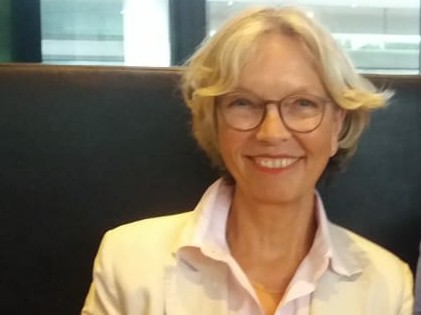
Prof. Dr. Anna Margaretha Horatschek
Kiel University (Christian-Albrechts-Universität zu Kiel), Kiel, Germany
Anna M. Horatschek studied English Literature, Philosophy, and German Literature in Germany and USA. She received her B.A. from UC Berkeley, USA, and her PhD from Freiburg University (Germany) with a dissertation on the epistemological significance of self-reflexive language experiments in the novels of US-author Richard Brautigan. She habilitated with a monography on the epistemological, political, and ethical implications of identity and alterity constructs (nation, gender, ´race´) in novels by Joseph Conrad, E.M. Forster, and D.H. Lawrence. In 1998, she spent a year as Visiting Professor at the University of Maryland, USA. From 2000 to 2018, she held the chair as professor for English Literature at Kiel University, Germany. Since 2011 she has been a member, and since 2016 she is Vice President of the German Academy of Sciences and Humanities in Hamburg. She has published widely on knowledge formation, consciousness studies, identity and alterity constructs, intermedial representation in English and American Literature, and on transcultural poetics and gender issues in Indian Literatures in English. Her recent books include Competing Knowledges – Wissen im Widerstreit, DeGruyter, 2020 (ed.), Identitäten im Prozess: Region, Nation, Staat, Individuum, DeGruyter, 2015 (ed. with A. Pistor-Hatam), and Navigating Cultural Spaces: Maritime Places, Rodopi, 2014 (ed. with Y. Rosenberg, D. Schäbler).
TBA.
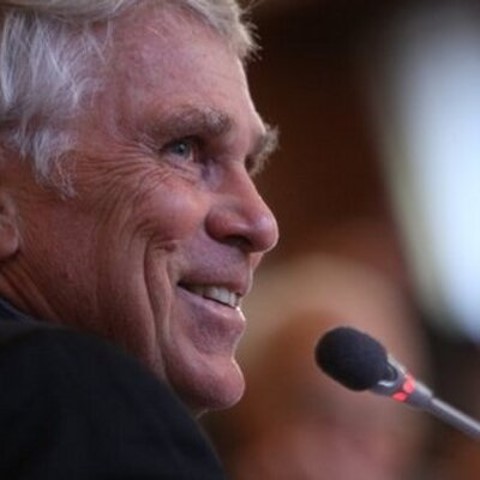
Prof. Dr. Mark Juergensmeyer
University of California, Santa Barbara, Department of Global Studies, USA.
Mark Juergensmeyer is Distinguished Professor of Sociology and Global Studies at the University of California, Santa Barbara, where he was founding director of the Orfalea Center for Global and International Studies. He has taught at the Berkeley, Santa Cruz and Santa Barbara campuses of the University of California and served as founding dean of Asian and Pacific Studies at the University of Hawaii. He is the recipient of Guggenheim, American Council of Learned Societies, and other fellowships, and has two honorary doctorates. He has served as President of the American Academy of Religion, and is author or editor of 30 books, including The Oxford Handbook of Global Religion, The Encyclopedia of Global Religion, God in the Tumult of the Global Square, Radhasoami Reality, Gandhi’s Way, and the award-winning Terror in the Mind of God. He received his PhD in political science from the University of California at Berkeley and a Master of Divinity from Union Theological Seminary, New York.
“Social Evolution of Religious Consciousness”
In the evolution of human consciousness, the perception of religion plays a key role. It has evolved from the times of the Vedas and early human Bible that focused on petitions to the gods, to the Axial Age where religious perception became theoretical, to modern times when individualism and voluntary community has reigned supreme. Now we are on the brink of a new form of perception shaped by our scientific understandings and the effect of computers and AI in shaping human insight and creativity, and thus our perception of religious consciousness is evolving as well.
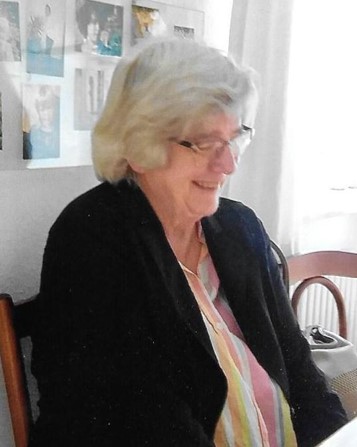
Dr. Christine Mann
Munich, Germany
Christine Mann, née Heisenberg, is the 6th child of 1932 Nobel Laureate Werner Heisenberg and his wife Elisabeth Heisenberg. She studied Theology and Pedagogics in Munich (1964-1968), Germany, and Psychology at the University of Münster (1974-78), and in 1986 obtained her PhD in the field of Educational Science at the University of Göttingen. She has worked at various primary schools in Bavaria and North Rhine-Westphalia, and as head of a school psychological counselling centre in Worms. In 1966, Dr Mann married Prof Frido Mann, grandson of 1929 Nobel Laureate Thomas Mann.
Since 2001 Dr Mann has turned to quantum physics. In 2011 Frido and Christine Mann initiated an interdisciplinary discussion group, in which they met regularily with Prof Dr Thomas Görnitz and others, to think about questions of the relationship between mind and matter in quantum physics.
After numerous publications in the pedagogical-didactic field, in 2017 Frido and Christine Mann jointly published the monograph Es werde Licht. Die Einheit von Geist und Materie in der Quantenphysik (Let there be Light. The Unity of Spirit and Matter in Quantum Physics), Fischer-Verlag. The anthology Im Lichte der Quanten. Konsequenzen eines neuen Weltbildes (In the Light of Quanta. Implications of a New World View), edited by Frido and Christine Mann, is scheduled to be published by the Wissenschaftliche Buchgesellschaft (WBG) Theiss in February 2021.
“Quantum Physics and the development of consciousness”
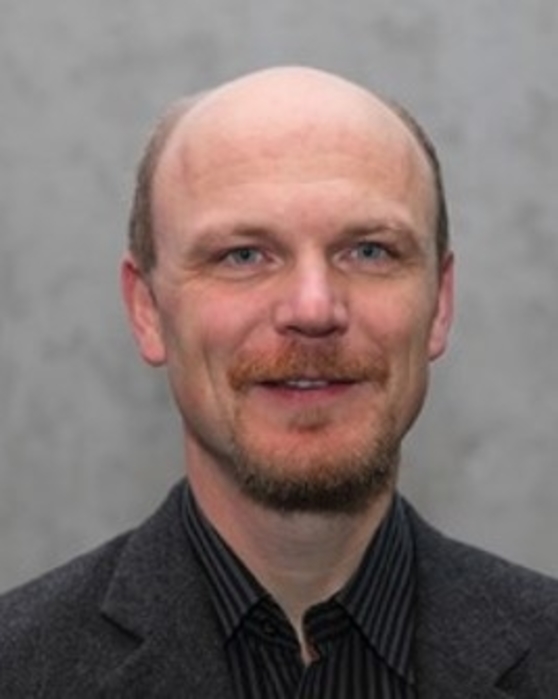
Prof. Dr. Andreas Müller
Kiel University, Faculty of Theology, Professorship for the History of Church and Religion of the 1st Millennium, Kiel, Germany.
Andreas Müller (*1966 in Bochum) studied Protestant Theology in Bethel/Bielefeld, Bern (CH), Heidelberg and Thessaloniki (GR). Doctorate in 1998 in Heidelberg. Habilitation 2003 in Munich with a thesis on spiritual obedience in Johannes Sinaites, called John of the Ladder. 2003-2009 work as pastor of the Protestant Church of Westphalia with a church-historical research project and parallel professorships in Jena, Kiel and Berlin. Since 2009 professor for church and religious history of the 1st millennium at Kiel University. Since 2011 Vice-Chairman and Chairman of the Church History Section of the Scientific Society for Theology (Wissenschaftliche Gesellschaft für Theologie). Since 2012 Chairman of the Society of Friends of Christian Mysticism.
“The spirituality of the Christian desert fathers as a basis for their relationship to the environment.”
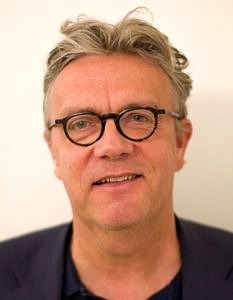
Prof. Dr. Andreas Nehring
Friedrich-Alexander-University, Nürnberg-Erlangen, Institute for Systematic Theology, Nürnberg, Germany
Andreas Nehring (*1957), Dr. theol. is Professor for Religious Studies and Intercultural Theology at the Friedrich-Alexander-University Erlangen. He has been visiting Professor at The University of Salzburg, in Tanzania, Hong Kong, Malaysia and Myanmar.
His fields of research are: Theories of Religious and Cultural Studies, Postcolonial Theologies, Transcultural Processes of Exchange and Communication between Europe and India, History of Missions, Mindfulness and the Reception of Buddhist Concepts in the West.
Selected Publications: Orientalismus und Mission – Die Repräsentation südindischer Religion durch deutsche Missionare. Wiesbaden: Harrassowitz (2003); Religious Turns – Turning Religions. Veränderte kulturelle Diskurse – neue religiöse Wissensformen, ed. with Joachim Valentin. Stuttgart: Kohlhammer (2008); Interreligious Comparison in Religious Studies and Theology. Comparison Revisited, ed. with Perry Schmidt-Leukel. London-Oxford-New York: Bloomsbury (2016); Postkoloniale Theologie II, ed. with Simon Wiesgickl. Stuttgart: Kohlhammer (2018); Heilige und geheiligte Dinge, ed. with Andrea Beck & Klaus Herbers. Stuttgart: Steiner (2017); Sakralität und Macht, ed. with mit Klaus Herbers & Karin Steiner, Stuttgart:Steiner (2019).
“Spirituality and Art: Transgressions in the Context of Religious Pluralism”
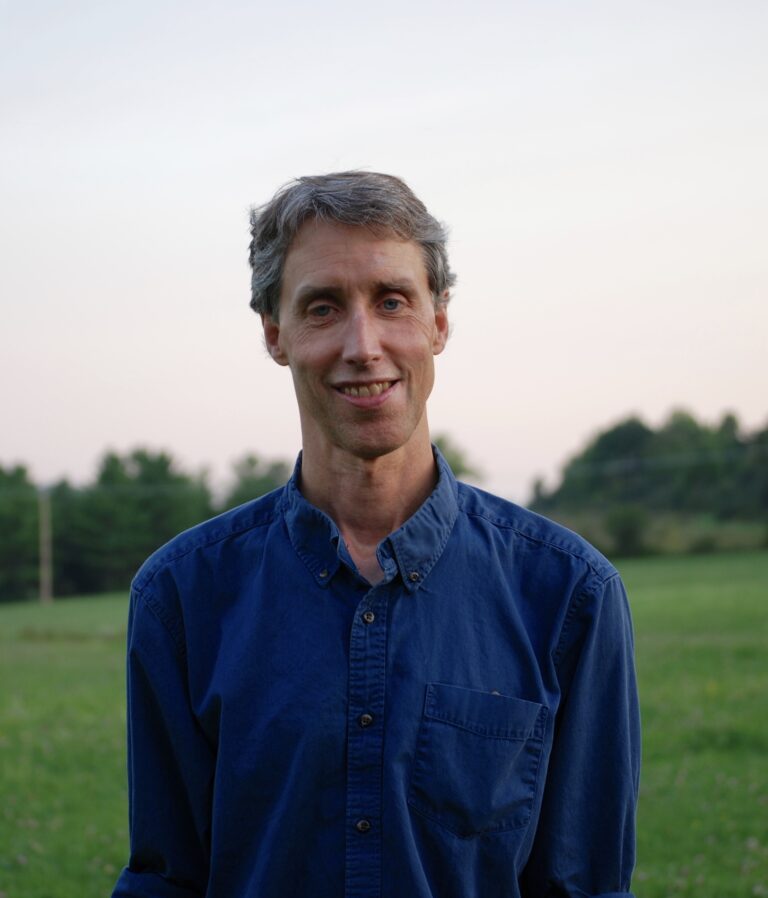
Prof. Dr. John Spackman
Professor of Philosophy at Middlebury College, Vermont, United States
“Nonconceptuality, Meditation, and the Reflexive Structure of Consciousness”
What is the relationship between consciousness and thought? This paper turns to early Yogācāra Buddhist texts for insight on this question. Higher-order thought (HOT) accounts view consciousness as a form of thought, and hence as conceptual. Higher-order perception (HOP) accounts view it as akin to perception, and thus as nonconceptual. The account of meditation in early Yogācāra Buddhist texts suggests that it is nonconceptual for quite different reasons. The paper considers two models of how meditative states have been viewed as nonconceptual. One model holds that meditative states have nonconceptual representational contents, but I argue that there are strong grounds for viewing all representational contents as conceptual. An alternative model, found in several Yogācāra texts attributed to Asaṅga, suggests that meditative states are nonconceptual in the sense that they promote an awareness of the reflexive nature of consciousness, which is itself nonconceptual. The paper supports reflexive over higher-order theories of consciousness, and argues that if consciousness is reflexive, it is nonconceptual, in that the act of consciousness and its object are identical, while concepts are necessarily distinct from their objects.
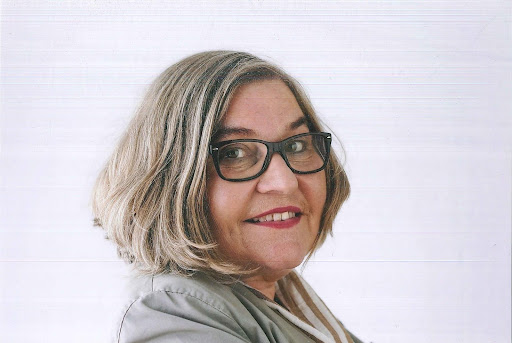
Prof. Dr. Annette Wilke
Münster University, Institute for Theology, Germany.
Annette Wilke is Professor of the Cultural Study of Religions (emeritus) at the Westfalian Wilhelms University of Muenster, Germany (1998–2019). Academic training in the History of Religions, Philosophy, and Theology at the University of Fribourg (CH), and in Indology in the US, Zurich und Varanasi. PhD in the History of Religions at the University of Berne (1994) with a dissertation on comparative mysticism. A. Wilke is a founding member of the Centre for Religious Studies at the University of Muenster and of the working group Aesthetics of Religion (German Association for the Study of Religion, DVRW). She has been conducting a research project on the Tantric ritual manual Paraśurāmakalpasūtra, funded by the German Research Foundation (DFG), and she belonged to AESToR NET, funded by the DFG. Until her retirement she was also a member of the Cluster of Excellence “Religion and Politics” at the University of Muenster with a project on global Hinduism.
Wilkes’s research focus: Hindu traditions, cultural hermeneutics, ethno-indology, comparative religion, mysticism, ritual studies, and the aesthetics of religion/ religion and the senses, esp. sensual awareness and consciousness building in Indian traditions, sound and communication in Sanskrit Hinduism past and present, and cultural hierarchies of perception. She has widely published in these fields. Publications include Ein Sein – Ein Erkennen. Meister Eckharts Christologie und Śaṃkaras Lehre vom Ātman: Zur (Un-)Vergleichbarkeit zweier Einheitslehren (1995); with O. Moebus Sound and Communication. An Aesthetic Cultural History of Sanskrit Hinduism (2011) – also addressing sound in Radhasoami faith; with L. Traut (eds.), Imagination – Religion – Ästhetik (2015); ed., Constructions of Mysticism as a Universal. Roots and Interactions Across Borders (2021).
TBA.
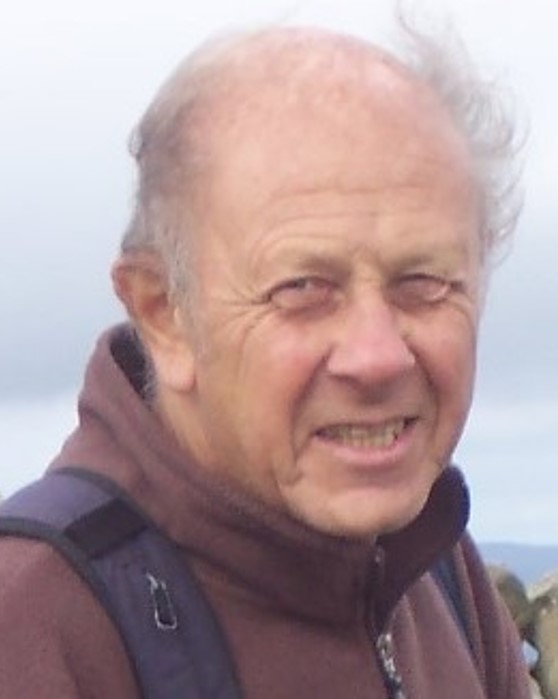
Prof. Dr. Ralph Yarrow
University of East Anglia, (UEA), Norwich, School of Literature, Drama and Creative Writing, UK.
Ralph Yarrow is a teacher, theatre director, performer, actor trainer, writer, editor, translator, project leader.
I made a founding international contribution to research into consciousness and the arts; developed further specializations in improvisation, Indian and Asian theatre, and Applied Theatre, centred on close co-operation with India’s leading Forum Theatre/Theatre of the Oppressed organisation, Jana Sanskriti.
Books include Improvisation in Drama, Theatre and Performance (with Anthony Frost, 3rd edition, 2015); Indian Theatre: Theatre of Origin, Theatre of Freedom; and the co-written Sacred Theatre (with Carl Lavery et al); translations (from German) of Birgit Fritz’s InExactArt: the Autopoietic Theatre of Augusto Boal, and her The Courage to Be: Augusto Boal’s Revolutionary Politics of the Body (2016).
I have directed in the UK, Germany, India and South Africa.
Current research focuses on Theatre of the Oppressed/Applied Theatre practice; theatre and embodiment; Indian and South African practice and contemporary theatre; theatre and ecology.
TBA.